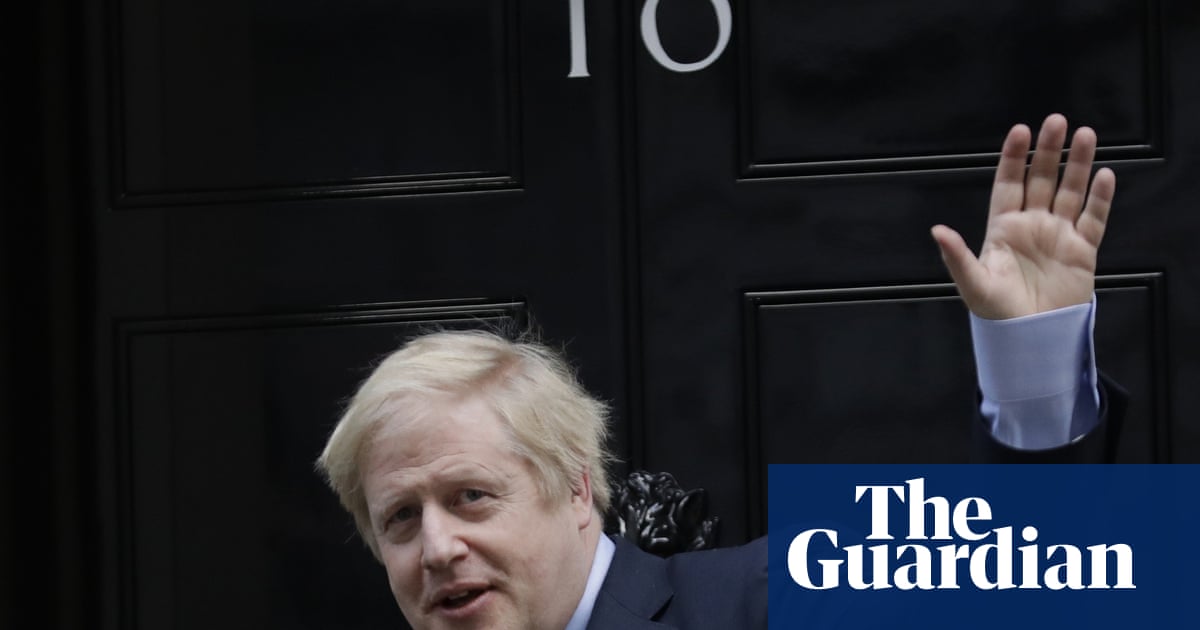
Boris Johnson is warned today that more than 800,000 people risk being plunged into poverty as a result of an imminent cut to universal credit, amid a plot by senior Tories to force the government into a last-minute U-turn.
With Conservatives from across the party pressing for a compromise deal this weekend as ministers face a potential Commons revolt, the Observer has seen new analysis that suggests the impact of the £20-a-week cut could be severe with energy costs and food prices rising.
It finds that the extra support protected some 840,000 people from poverty in the second quarter of this year. The research from the Legatum Institute thinktank includes 290,000 children – a figure that is causing particular concerns among Tories, who fear a significant increase in child poverty after the cut. The figure includes extra universal credit help given to the self-employed.
With Conservatives warning that the cut will immediately undermine Johnson’s pledge to “level up” the country – a claim repeated after his reshuffle last week – some 320,000 of the people in the group were in a full-time working family before the pandemic, with a further 300,000 in a family working a mixture of full-time and part-time.
Former Tory leader Iain Duncan Smith, the architect of universal credit, is attempting to spearhead a Commons coup on Monday by forcing a vote on the cut. The vote could embarrass the government should it go ahead, with another former welfare minister, Damian Green, also backing a cross-party amendment.
Duncan Smith said that the Treasury risked repeating the mistakes of austerity by trying to bring down pandemic spending too quickly. “Universal credit levels-up because it gets people back into work, back into the sense of work,” he said. “We’ve got ourselves caught, with the Treasury now demanding that we start getting the money back from Covid. We should treat this like war debt. We can’t go back into a massive cutting exercise. Ultimately, that will affect the worst-off in society.”
Tory peer Philippa Stroud, the Legatum Institute’s chief executive, who helped construct universal credit as an adviser to Duncan Smith, said that it was important for MPs to be “in possession of the full facts” as they considered the reduction. “Instead of withdrawing universal credit at this perilous time, we should be focusing our collective attention on ways to unlock prosperity across all of our regions and communities,” she said.
Ministers are among those hoping that the Treasury will use next month’s budget to unveil a compromise deal that would see those in work and on universal credit allowed to earn more before their benefits begin to be reduced. So far, Rishi Sunak has been adamant that there will be no rethink over the decision to end the £20-a-week increase at the end of the month.
Andy Street, the Tory West Midlands mayor, is among those attempting to secure concessions. “The government has provided unprecedented levels of support throughout the pandemic, but now as we move into the recovery phase there are some incredibly difficult decisions to be made – including around the universal credit uplift,” he said. “I do have concerns about the impact the removal of this uplift would have in the West Midlands, and I am keen to work with the government to see if other benefit levels could be amended to help mitigate the impact on the worst affected.”
Another former Tory welfare secretary, David Gauke, said that with inflation increasing, there was still time for a compromise. “The Treasury is right to be concerned about the long-term outlook for the public finances but the complete and overnight withdrawal of the uplift will be very painful for millions of households, especially at a time of rising prices,” he said. “The uplift itself is a fairly crude policy, but there is a very strong case for redeploying the uplift money into higher work allowances (even if then frozen) or a lower taper rate [the rate at which the benefit is removed as a claimant’s working hours increase].”
While the vote on Monday will not bind the government, it could illustrate the level of concern among the Tory ranks. Stephen McPartland, the Conservative MP for Stevenage, said: “It is not too late for the prime minister to step in and show his authority by supporting millions of people facing this cut of over £1,000 a year. Energy bills are going through the roof, new taxes on working people and incomes being squeezed – £20 a week may not sound like much, but to those on low incomes, trying to do the right thing, it often makes all the difference.”
A government spokesperson said the £20 universal credit uplift had always been a temporary measure. “It was designed to help claimants through the economic shock and financial disruption of the toughest stages of the pandemic, and it has done so,” they said. “Universal credit will continue to provide vital support for those both in and out of work and it’s right that the government should focus on our plan for jobs, supporting people back into work and supporting those already employed to progress and earn more.”












